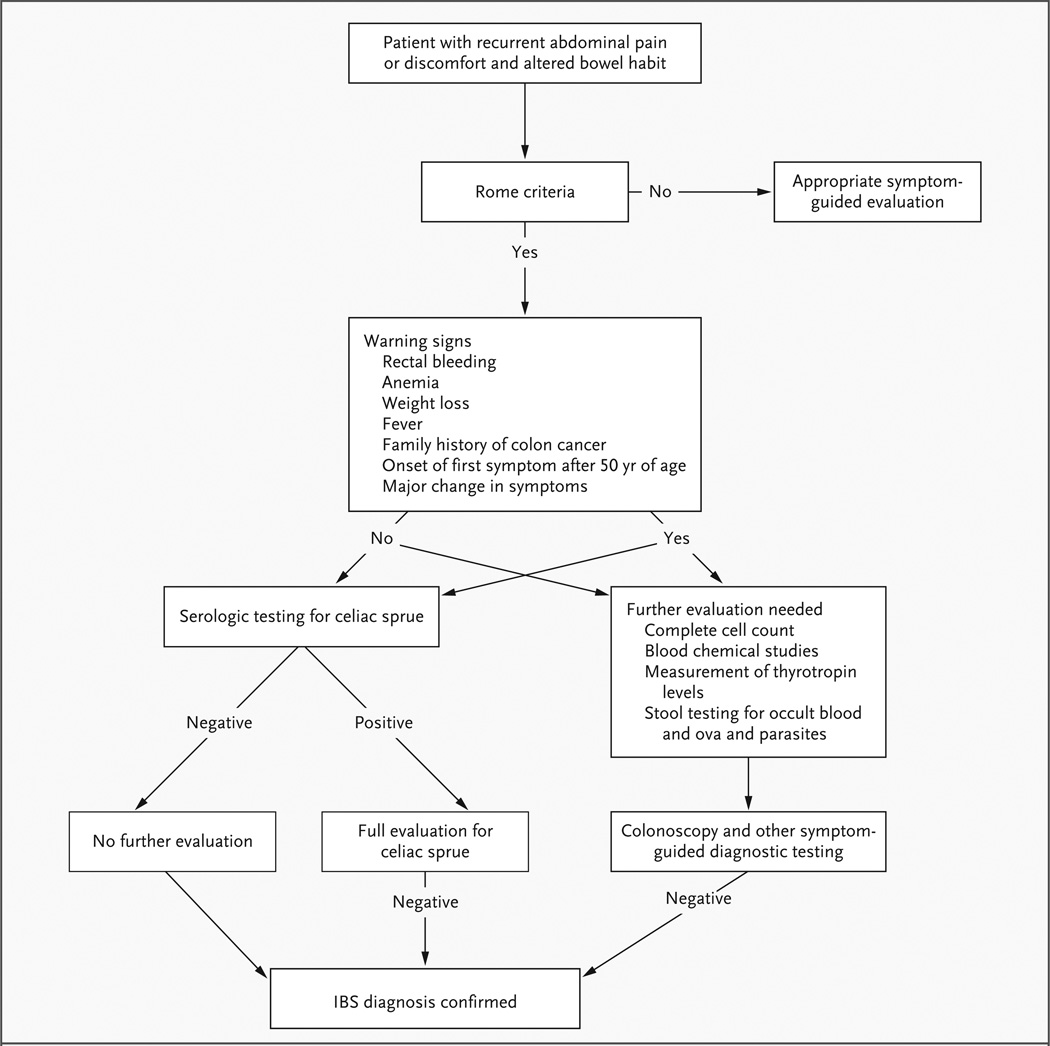Figure 1. Differential Diagnosis.
Testing for celiac sprue may be useful in patients who meet the Rome criteria16 (especially in those with diarrheapredominant IBS), in patients who have warning signs, and in populations in which the prevalence of celiac sprue is high.17 If there are no warning signs, then basic blood counts, serum biochemical studies, stool testing for occult blood and ova and parasites, and measurement of thyrotropin levels are indicated only if there is a supportive clinical history.18 Colonoscopy is recommended only in patients who have warning signs. However, according to screening guidelines for colon cancer, routine colonoscopy should be performed in patients at the age of 50 years or older, regardless of whether IBS symptoms are present. If there has been a major qualitative change in the pattern of chronic symptoms, a new coexisting condition should be suspected, and a more comprehensive diagnostic approach is warranted.

